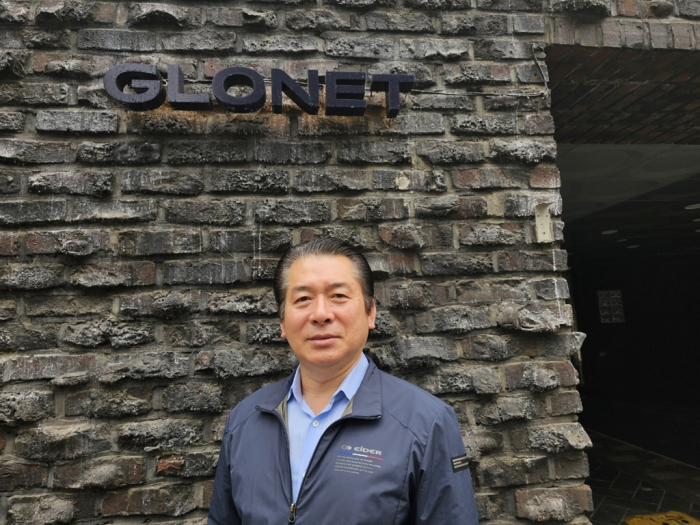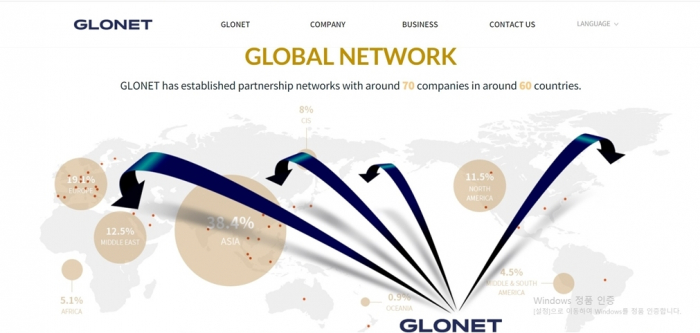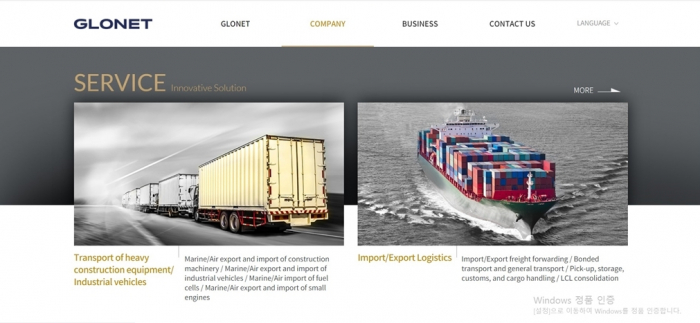Shipping & Shipbuilding
Glonet: A case of Korea's logistics David vs Japan’s shipping Goliath
The small Korean shipper has used a different cost-cutting tactic than that of its bigger Japanese rivals to win a deal
By Jun 07, 2023 (Gmt+09:00)
2
Min read
Most Read
LG Chem to sell water filter business to Glenwood PE for $692 million


Kyobo Life poised to buy Japan’s SBI Group-owned savings bank


KT&G eyes overseas M&A after rejecting activist fund's offer


StockX in merger talks with Naver’s online reseller Kream


Mirae Asset to be named Korea Post’s core real estate fund operator



TOKYO – Glonet Co. is a novice logistics company hardly known in Japan’s time-honored shipping industry.
The small South Korean shipping company, established just seven years ago, recently surprised many Japanese shipping executives by becoming one of just a few foreign companies to break the industry’s high entry barrier, often criticized as closed and exclusive.
Glonet recently signed a contract to supply biomass fuel to Japan’s two power plants – a deal industry officials say is worth as much as 300 billion won ($230 million), sources said on Wednesday.
Under the deal, a biomass power plant in Ishikari, Hokkaido, and another in Kamisu, Ibaraki Prefecture, will each receive 200,000 tons a year of biomass fuel through 2037.
The deal marks the first time that a Korean shipping company has signed a long-term transportation contract with a Japanese power plant operator.

Japan’s shipping industry has a long tradition of offering one-stop services ranging from securing ships to delivering products to clients – a practice that often pushes the entire transportation costs sharply higher.
More often than not, Japanese shipping companies send empty ships to fetch products abroad and return home in so-called round-trip shipping. A one-way trip to Southeast Asia usually takes a Japanese shipper two weeks.
DIFFERENT TACTIC
Unlike Japanese shipping companies, Glonet has employed a different tactic to cut costs.
It has secured 80 vessels, mostly smaller bulk carriers, near Singapore to transport biomass fuel from Southeast Asian countries to Japan.

In addition to the much shorter delivery time, Glonet said it also expects to slash transport costs by more than 20% compared to its Japanese rivals, which run big bulkers.
Established in 2016, more than a third of Glonet’s employees are industry veterans with at least 15 years of work experience in the logistics industry.
Chief Executive Kim Jeong-cheol is a Japan expert who previously worked at Samsung C&T Corp., dealing with Japan’s Itochu Corp.
Park Kyung-jin, a Glonet executive who previously was a ship pilot, has over 30 years of work experience in logistics.

GLOBAL INITIATIVE
Biomass power generation uses palm kernel shells (PKS) and wood pallets as raw materials. Electricity generated through such methods is classified as renewable energy since its greenhouse gas emissions are close to zero.
Biomass raw materials are mostly produced in Indonesia and Vietnam.
With lower costs and higher efficiency in power generation than other renewable energy sources such as solar and wind power, advanced countries are increasingly resorting to biomass fuels.
In the UK and many other major European countries, biomass is expected to account for about a fifth of their renewable energy sources this year.
Japan plans to raise the ratio of biomass in its power generation sources to 4.6% by 2030 from the current 3.7%. The Japanese government has issued licenses for 100 biomass power generators, 30 units of which are set to kick off by the end of this year.
Write to Yeong-Hyo Jeong at hugh@hankyung.com
In-Soo Nam edited this article.
More to Read
-
 LogisticsHyundai Glovis, Malaysia’s Lion Group to enter ASEAN logistics market
LogisticsHyundai Glovis, Malaysia’s Lion Group to enter ASEAN logistics marketNov 16, 2022 (Gmt+09:00)
1 Min read -
 LogisticsHyundai Mobis to build $69 mn integrated logistics center in Korea
LogisticsHyundai Mobis to build $69 mn integrated logistics center in KoreaNov 10, 2022 (Gmt+09:00)
1 Min read -
 LogisticsSamsung SDS takes smart logistics platform Cello Square to China
LogisticsSamsung SDS takes smart logistics platform Cello Square to ChinaMay 12, 2022 (Gmt+09:00)
1 Min read
Comment 0
LOG IN


